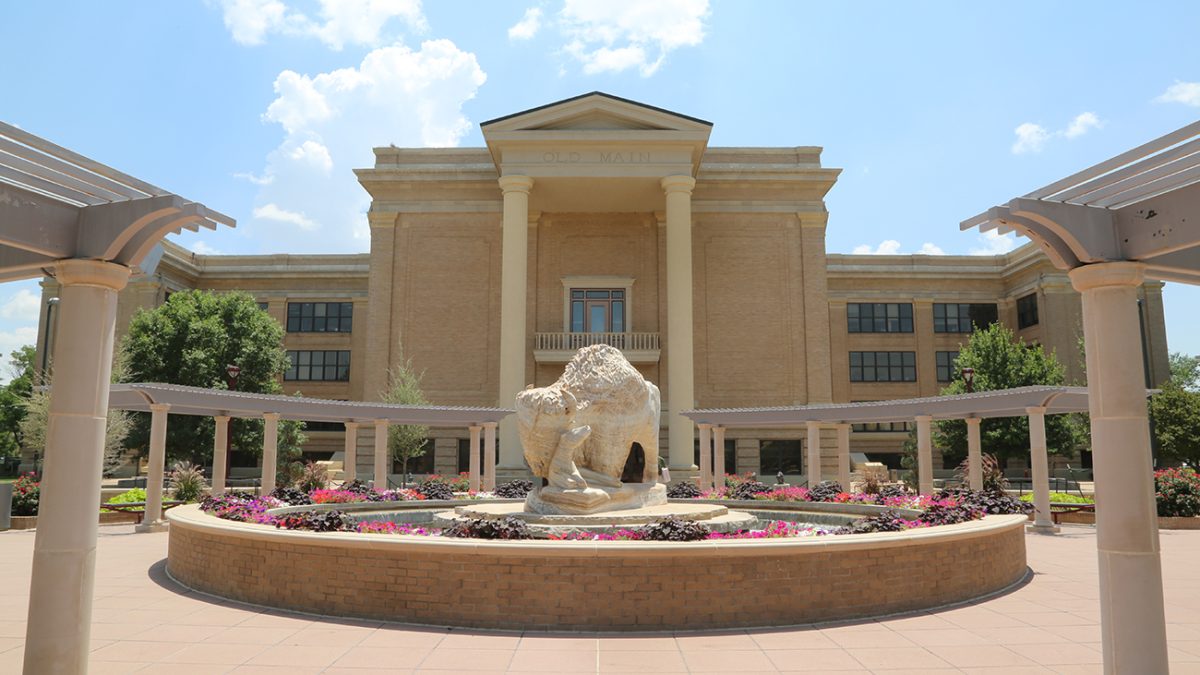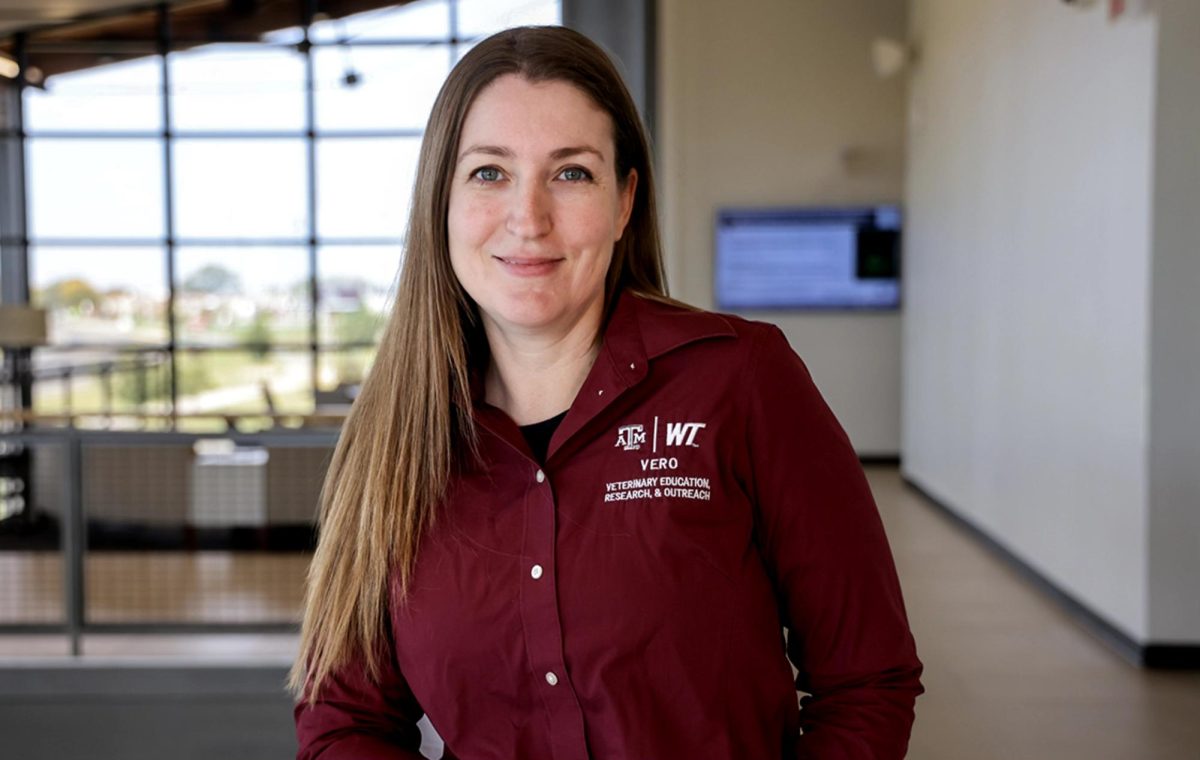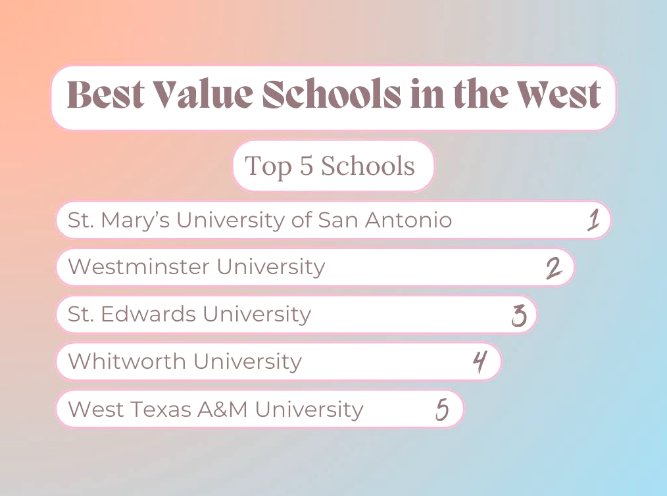CANYON, Texas — West Texas A&M University students soon can earn an associate degree en route to completing their bachelor’s degree, thanks to a new plan approved by The Texas A&M University System Board of Regents that will help combat student indebtedness.
Pending final agreement from the Texas Higher Education Coordinating Board, TAMUS Regents on Feb. 9 approved a plan that establishes eight new degree programs: associate of arts degrees in liberal arts and humanities and multidisciplinary studies, and associate of science degrees in business, education, health sciences, mathematics, natural sciences and social sciences.
The new degree program shows that WT continues to pioneer new ways to assist students in keeping their indebtedness as low as possible.
Tarleton State University, also in The Texas A&M University System, is the only other four-year state institution providing associate degrees, though WT’s plan focuses more on giving students a recognized milestone or stop-out point.
“We want our students to complete a bachelor’s degree. That’s part of our ultimate goal and mission as a university,” WT President Walter V. Wendler said. “But we understand that students may have life events that require them to pause their education. That’s why we believe these embedded associate degrees will be helpful now and in the future.”
According to the U.S. Bureau of Labor, people with associate degrees earn almost 14 percent more in average weekly earnings. Those holding an associate degree are 38 percent more likely than those with a high school degree to be in a management, professional or other related job.
Students will not enroll in an associate degree program, so the plan is not meant to compete with community colleges. Rather, the degree will be automatically awarded to them once they meet the requirements. They will be mailed a diploma, but they will not take part in graduation ceremonies.
“Our intent is still for these students to earn their bachelor’s degrees, and our commencement ceremonies will continue to reflect that,” said Dr. Neil Terry, provost and executive vice president for academic affairs.
WT officials say the new associate degree plans will support the University’s efforts in student retention in three ways.
First, students who feel they need to pause their education will be encouraged to see how close they are to completing the embedded associate degree. If they can finish that degree before pausing, they likely will be able to earn higher salaries in the workforce. They also will have completed the University’s core curriculum, so it would be easier for them to return to WT in the future.
Also, students who have previously left the University can request that their academic record be evaluated to see how many classes they’ll need to complete to earn the embedded associate degree.
And finally, students often struggle between their sophomore and junior years, said Dr. Chris Thomas, vice president for student affairs.
“By creating a midpoint benchmark, we hope students will see what progress they’ve made and will be encouraged to continue on to complete their bachelor’s degree,” Thomas said.
In addition, WT expect the embedded associate degree will aid in recruitment, attracting students who are interested in achieving both an associate and a bachelor’s at the same school.
The eight embedded associate degrees represent each of WT’s six Colleges: the Paul Engler College of Agriculture and Natural Sciences , the Paul & Virginia Engler College of Business, the Terry B. Rogers College of Education and Social Sciences, the College of Engineering, Sybil B. Harrington College of Fine Arts & Humanities and the College of Nursing and Health Sciences.
Students will be required to reach 60 semester credit hours to earn the embedded associate degree — 42 hours of core curriculum courses and 18 hours aligned with their major.
The associate of science in mathematics will be implemented beginning in fall 2024; the other seven programs will be implemented in spring 2025.
WT’s embedded associate degree plan aligns with THECB’s “Building a Talent Strong Texas” initiative and its 60x30TX plan to have at least 60 percent of Texans attain a postsecondary credential by 2030.
Providing regionally responsive academic programs is a key mission of the University’s long-range plan, WT 125: From the Panhandle to the World.
That plan is fueled by the historic One West comprehensive fundraising campaign, which reached its initial $125 million goal 18 months after publicly launching in September 2021. The campaign’s new goal is to reach $175 million by 2025; currently, it has raised more than $150 million.









